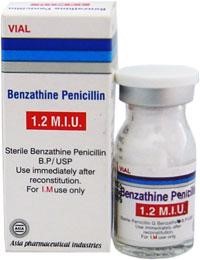A nurse is providing prenatal care to a pregnant client. At which time would the nurse expect to screen the client for group B streptococcus infection?
28 weeks' gestation
32 weeks' gestation
16 weeks' gestation
36 weeks' gestation
The Correct Answer is D
Choice A: 28 weeks' gestation is too early to screen for group B streptococcus infection. Group B streptococcus (GBS) is a type of bacteria that can cause serious infections in newborns if transmitted from the mother during labor and delivery. The optimal time to screen for GBS is between 35 and 37 weeks' gestation.
Choice B: 32 weeks' gestation is also too early to screen for GBS infection. Screening at this time may not reflect the true colonization status of the mother at the time of delivery, as GBS can be transient or intermittent.
Choice C: 16 weeks' gestation is much too early to screen for GBS infection. Screening at this time has no clinical value, as GBS colonization can change throughout pregnancy.
Choice D: 36 weeks' gestation is the appropriate time to screen for GBS infection. Screening at this time can identify mothers who are colonized with GBS and who need intrapartum antibiotic prophylaxis to prevent neonatal sepsis, pneumonia, and meningitis.
Nursing Test Bank
Naxlex Comprehensive Predictor Exams
Related Questions
Correct Answer is A
Explanation
Choice A Reason: This is correct because this description accurately reflects one of the main functions of amniotic fluid, which is to act as a shock absorber and buffer against external forces or movements that could harm the fetus. Amniotic fluid also allows the fetus to move freely and develop its muscles and bones.
Choice B Reason: This is incorrect because this description is false. The amount of amniotic fluid changes throughout the pregnancy, depending on the stage of fetal development and other factors. The normal range of amniotic fluid volume is between 500 and 1000 mL at term. Too much or too little amniotic fluid can indicate a problem with the fetus or the placenta.
Choice C Reason: This is incorrect because this description is false. The fluid is not mostly protein, but mostly water (about 98%). The water comes from the mother's blood plasma and the fetal urine. The remaining 2% of amniotic fluid consists of various substances, such as electrolytes, hormones, enzymes, antibodies, and fetal cells. Amniotic fluid does not provide nourishment to the fetus, but rather protects it from infection and helps regulate its temperature.
Choice D Reason: This is incorrect because this description is false. Amniotic fluid does not act as a transport mechanism for oxygen and nutrients, but rather as a barrier that prevents them from reaching the fetus directly. Oxygen and nutrients are delivered to the fetus through the placenta and the umbilical cord, which are connected to the maternal blood circulation.
Correct Answer is ["2"]
Explanation
The correct answer is 2 mL. To calculate the volume to administer, the nurse should use the following formula:
Volume (mL) = Dose (units) / Concentration (units/mL)
Plugging in the given values, we get:
Volume (mL) = 1,200,000 units / 600,000 units/mL
Volume (mL) = 2 mL
Rounding to the nearest whole number, we get 2 mL.

Whether you are a student looking to ace your exams or a practicing nurse seeking to enhance your expertise , our nursing education contents will empower you with the confidence and competence to make a difference in the lives of patients and become a respected leader in the healthcare field.
Visit Naxlex, invest in your future and unlock endless possibilities with our unparalleled nursing education contents today
Report Wrong Answer on the Current Question
Do you disagree with the answer? If yes, what is your expected answer? Explain.
Kindly be descriptive with the issue you are facing.
